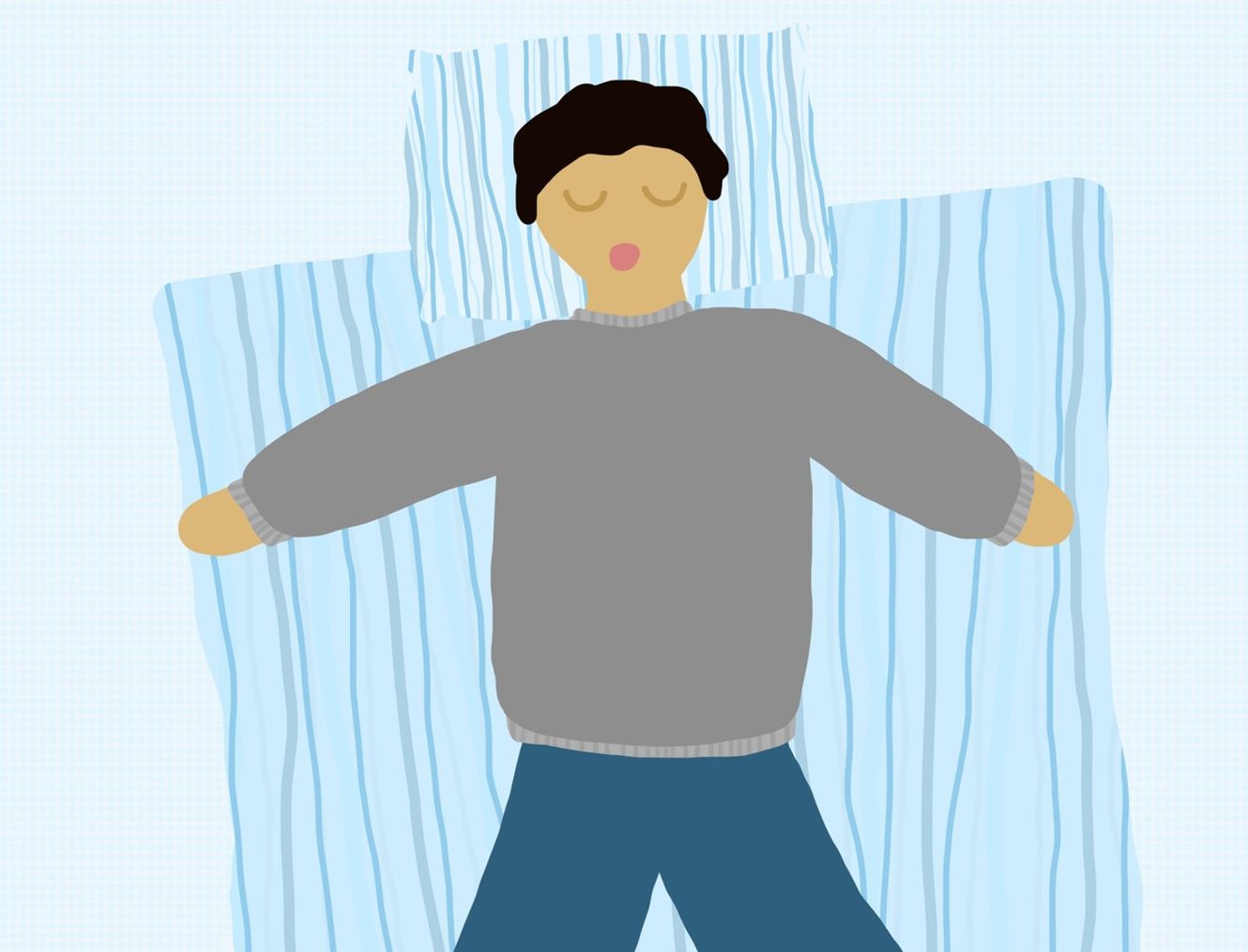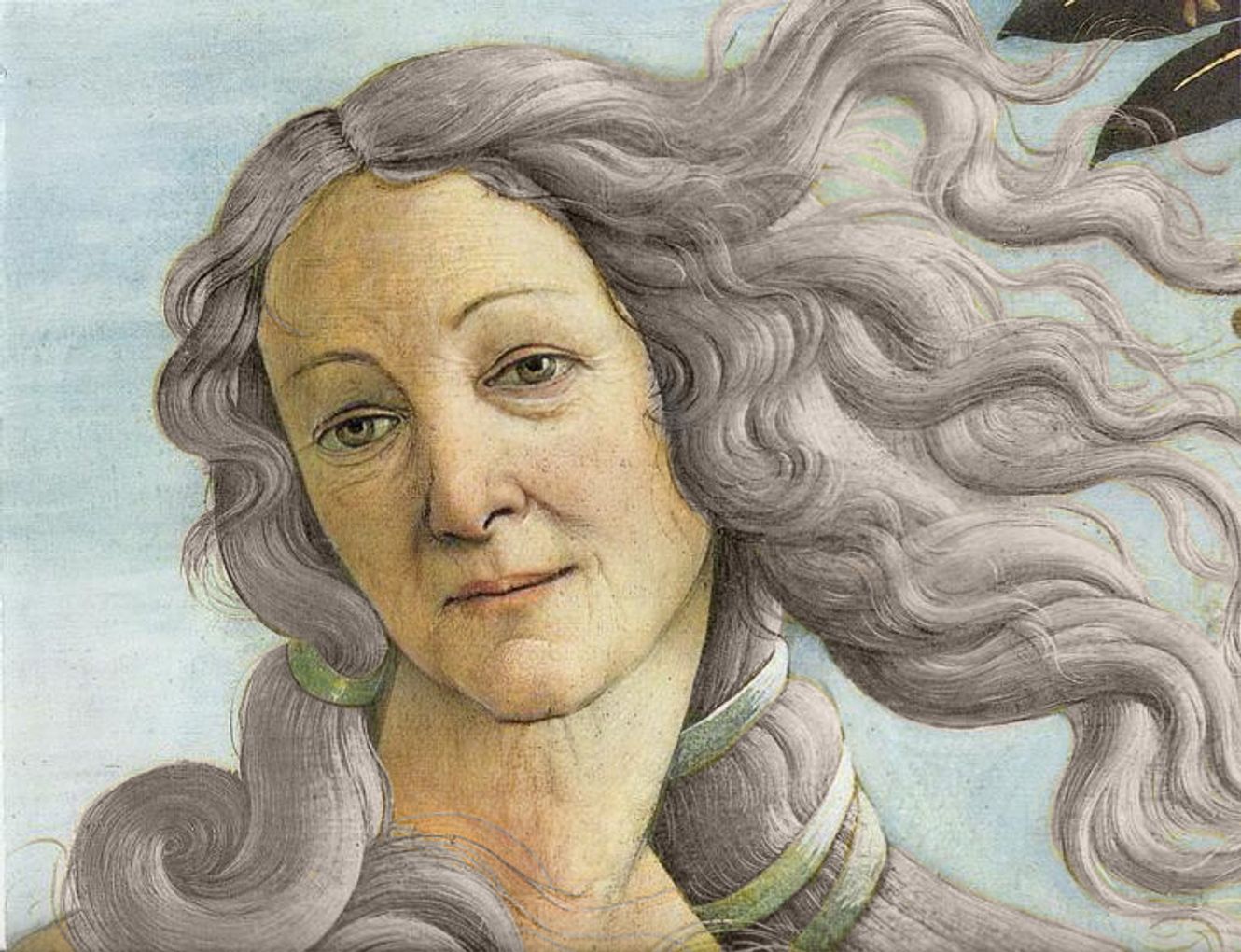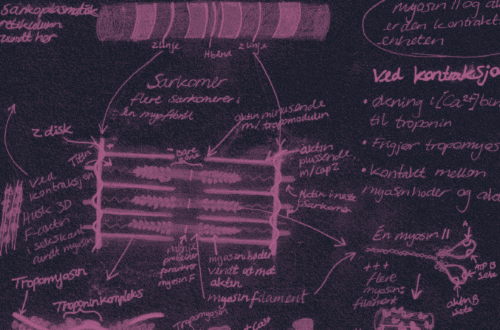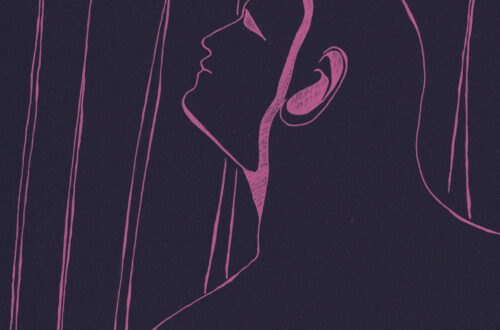tekst: Keith Zhou
It was the day before Christmas Eve that I decided to go to the gym for the last time in 2021. I put some extra weight on the lower back machine to get a sense of fulfillment at the end of the year. Then I went home, fell asleep on the sofa while dead-scrolling TikTok—a guilty pleasure indeed. When I woke up, a sharp spasm ran across my lower back, and before I could figure out what went wrong, I could no longer bend over.
Lying in bed and feeling like a hundred years old, I remembered reading one of Geoff Dyer’s essays where he got a stroke. At the age of 55, sportive and thin as a rake, he lost vision in the left eye one afternoon while trying to push a can into a full garbage bin in the kitchen. As is usually the case with strokes, the contrast between the banality of the action and the severity of the consequences is almost comical.
My injury was a much less spiritual experience, according to the basic Law of Relativity; when you stay absolutely still, everything else is moving.
Unable to do anything other than rest in bed, the Holy Night had literally become a Silent Night. Thankfully, things got increasingly better over the holidays. As the new year came, I no longer experienced any pain walking or standing. Out of some strange New Year’s resolution—in other words, a sudden burst of stupidity, I did ten squats. Then I was in so much pain that I could not put my socks on.
To say I was unable to put my socks on is in fact an understatement. My entire upper body could only move vertically, with my back stiff like a robot built with Lego pieces, and anything that involved areas under the waist became a challenge: changing underwear, scratching my legs in the shower, and the trickiest problem of them all; figuring out how to gyrate my hips to a comfortable enough degree in order to wipe my own ass.
For Dyer, the stroke opened “an infinite series of trapdoors” where he was confronted with the horror of the end of middle age, and his partially compromised vision called into question his own existence both in the form of a body and a functioning brain. My injury was a much less spiritual experience, according to the basic Law of Relativity; when you stay absolutely still, everything else is moving. The dog downstairs was barking, the kids next door were running around, their parents shouting, and when they all quieted down, I suddenly realised how loud my clock was ticking.
At the end of age 35—still another seven months to go, thank you – childless and Chinese, the first question that came to my mind was “this is not gonna affect my sex life, is it?”, followed immediately by the second one: “does my health insurance cover chiropractic treatments?” That is an important life lesson perky 20-year-olds could never get. To a person terrified by the prospect of turning 40 and still refusing to grow up, sex always trumps money. Money, in turn, trumps everything else. While the answer to the first question remains to be seen — not in the near future unfortunately — the second one came as a definitive no. As it turned out, to get covered by the health insurance I get through work, I first need to see my GP. Then he must refer me to a nervous system specialist, and then, the nerve expert needs to refer me to a chiropractor. “That happens when things get really bad, and you are definitely not there yet,” the woman from the insurance company told me on the phone. Well, out of the whole shitstorm, there was at least this one silver lining.
As is usually the case with strokes, the contrast between the banality of the action and the severity of the consequences is almost comical.
On the first workday of 2022, I found a chiropractor clinic nearby and immediately booked an appointment. The treatment started with an X-ray consultation and ended with me getting a kick and a push on the pelvis. The whole process involved a lot more nudity and skin-to-skin contact than I had expected. It was a chronic dislocation, coupled with a sudden overload of pressure during the training session in the gym that triggered the whole issue, according to the chiropractor. I was then sent home to rest and recover. “Things should get much better tomorrow,” my chiropractor said.
In Tarkovsky’s film Solaris, there is a line saying that “since we never know when we are going to die, we are, at any given moment, immortal”. For me, the injury conjured up a similar time bubble. Nothing is taking place in this artificial vacuum of time now except healing; everything else is cut off from this realm of serenity.
I actually got this Tarkovsky line from Dyer as well. The idea, first germinated in the original book by Stanisław Lem, has passed down from him to Andrei Tarkovsky, and then from Geoff Dyer to me. This chain of transmission, at the height of the Covid-19 pandemic crisis, reminded me of how illness and suffering have connected humanity as a whole. Over the past two years of the virus wreaking havoc across the world, almost 300 million people have gotten sick, and more than five million have died. I weathered through the whole thing unscathed, and instead got a new job, better pay, and a much bigger flat. In some strange way, I saw my injury as payback for my good fortune. To the vast effort of striking a balance between human happiness and suffering, I had now contributed my fair share. As Dag Solstad, arguably the best Norwegian novelist alive, once put it, “one creates meaning by connecting the rituals of the mundane life to a collective consciousness”. So here I am, lying in bed on the verge of meaningfulness and meaninglessness, spreading out my legs and arms unapologetically like a piece of gingerbread man biscuit. We are in 2022 now and everything will just get better, I think. Within this injury-induced bubble, I’m blessed to experience, in the purest form, the spirit of the new year.
Keith Zhou: (f. 1986), master of mathematics, Universitetet i Oslo





